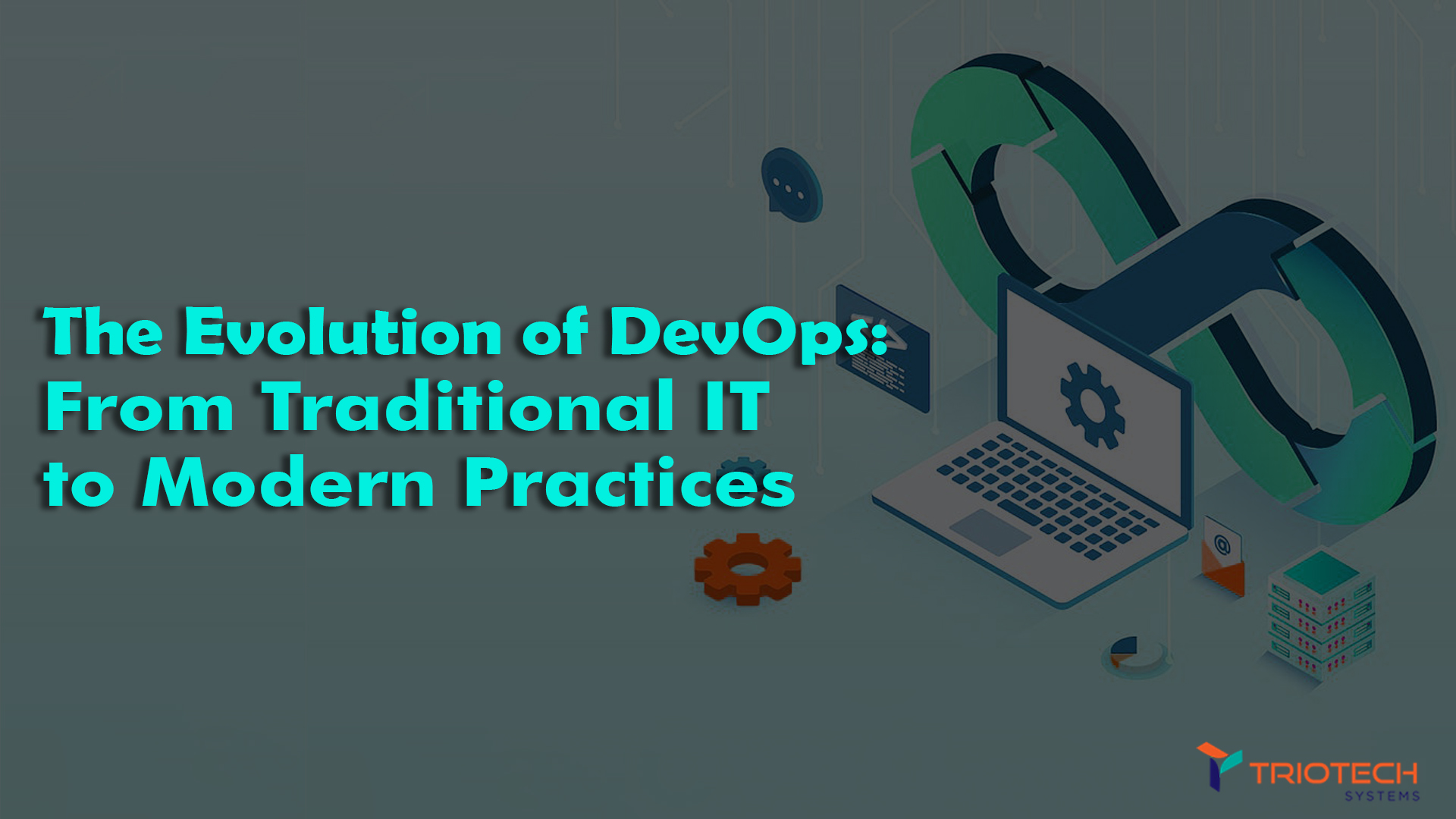In this evolving world of technology and software, the Evolution of DevOps is a transformative approach, bridging the gap between software development and IT operations. This methodology, which emphasizes collaboration, communication, and automation, has revolutionized the way organizations deliver applications and services. To fully appreciate the impact of DevOps, it is essential to understand its evolution from traditional IT practices to the modern practices we see today.
Understanding the Evolution of DevOps
The evolution of DevOps marks a significant shift from traditional IT practices, where development and operations teams worked in silos, leading to inefficiencies and slow deployment cycles. With the emergence of Agile methodologies focusing on iterative development and collaboration, a foundation was laid for DevOps, which gained traction around 2009. DevOps aims to enhance collaboration, automate processes, and integrate continuous integration and delivery (CI/CD), Infrastructure as Code (IaC), and continuous monitoring. Modern DevOps practices, including microservices architecture, containerization, and cloud computing, have revolutionized software development and deployment, enabling organizations to deliver high-quality applications rapidly and reliably, fostering innovation and scalability.
The Emergence of DevOps
The emergence of DevOps around 2009 marked a pivotal shift in IT by addressing the disconnect between development and operations teams. This modern DevOps practice
was born from the need to enhance collaboration, automate processes, and integrate continuous practices such as integration, delivery, and monitoring. By breaking down traditional silos, DevOps introduced key principles like Infrastructure as Code (IaC), continuous integration and delivery (CI/CD), and enhanced communication, paving the way for modern practices that enable rapid, reliable, and high-quality software delivery, ultimately driving innovation and efficiency in organizations.
The Era of Traditional IT
In the early days of traditional IT, development and operations teams worked in silos. Developers were responsible for writing code, while operations teams managed the deployment and maintenance of applications. This separation often led to several challenges:
Slow Deployment Cycles:
The process of developing, testing, and deploying software was time-consuming, often taking weeks or even months.
Lack of Collaboration:
The disconnect between the development and operations teams resulted in miscommunications and misunderstandings.
Inconsistent Environments:
Applications often behave differently in development, testing, and production environments due to inconsistent configurations.
Manual Processes:
Many tasks, such as deployment and configuration management, were done manually, leading to errors and inefficiencies.
Modern DevOps Practices
Today, DevOps evolution has become a comprehensive set of practices and tools that enable organizations to deliver software more rapidly, reliably, and securely. Some of the modern DevOps practices include:
Microservices Architecture:
Breaking down applications into smaller, independent services that can be developed, deployed, and scaled independently.
Containerization:
Using containers, such as Docker, to package applications and their dependencies, ensuring consistency across different environments.
Orchestration and Management:
Using tools like Kubernetes to manage and orchestrate containers, ensuring optimal resource utilization and scalability.
Cloud Computing:
Leveraging cloud platforms, such as AWS, Azure, and Google Cloud, to provide scalable and flexible infrastructure.
DevSecOps:
Integrating security practices into the DevOps workflow to ensure that security is addressed throughout the development lifecycle.
Site Reliability Engineering (SRE):
Applying software engineering principles to operations, with a focus on improving system reliability and performance.
The Impact of DevOps
The adoption of DevOps has had a profound impact on organizations across various industries. Some of the key benefits include:
Faster Time to Market:
By automating processes and enabling continuous delivery, organizations can release new features and updates more quickly.
Improved Collaboration:
DevOps fosters a culture of collaboration and shared responsibility, reducing conflicts and improving team morale.
Enhanced Quality:
Automated testing and continuous monitoring help identify and resolve issues early in the development process, leading to higher-quality software.
Scalability and Flexibility:
Modern DevOps practices, such as containerization and cloud computing, allow organizations to scale their applications and infrastructure more efficiently.
Greater Innovation:
With faster feedback loops and a more agile development process, teams can experiment and innovate more effectively.
Predicted Future Trends of DevOps
Integration of AI and Machine Learning
The future of DevOps is set to be profoundly influenced by the integration of AI and machine learning. These technologies can enhance automation, predict potential issues before they arise, and optimize resource management. AI-driven analytics will provide deeper insights into system performance and user behavior, allowing for more proactive and efficient operations. Machine learning algorithms can automate routine tasks, identify anomalies, and even suggest code improvements, leading to faster and more reliable software delivery.
Emphasis on Security and Compliance
As cyber threats become more sophisticated, the importance of integrating security into the DevOps pipeline, known as DevSecOps, will grow. Future DevOps practices will increasingly focus on embedding security measures throughout the development lifecycle, from code inception to deployment. This includes automated security testing, continuous compliance monitoring, and real-time threat detection. Ensuring that security is a fundamental component of the DevOps workflow will help organizations protect their applications and data more effectively, while also meeting regulatory requirements.
Conclusion:
In conclusion, the evolution of DevOps has significantly transformed the landscape of software development and IT operations, fostering collaboration, efficiency, and innovation. As we look to the future, the integration of AI and machine learning, along with a stronger emphasis on security and compliance, will further enhance DevOps practices. These advancements will enable organizations to deliver higher-quality software faster and more securely, ensuring that DevOps continues to be a critical driver of technological progress and business success.





